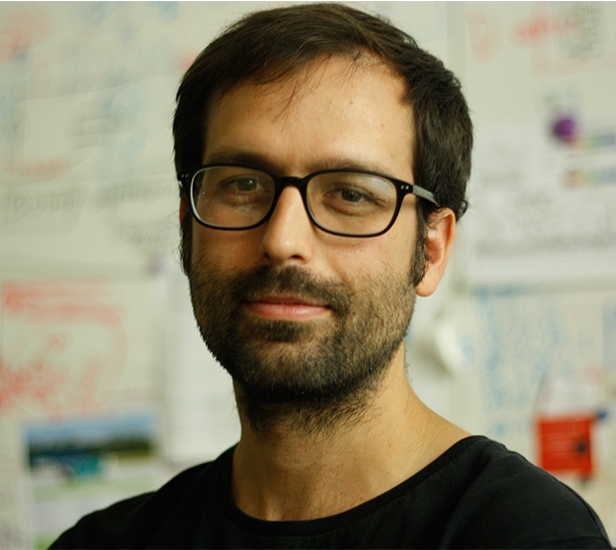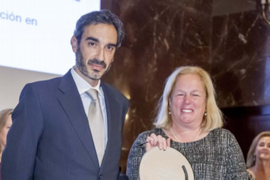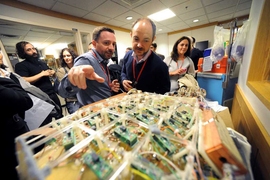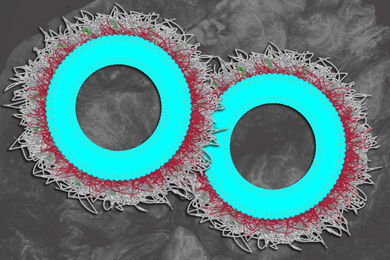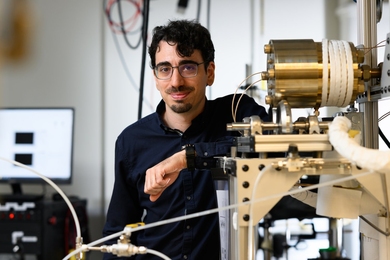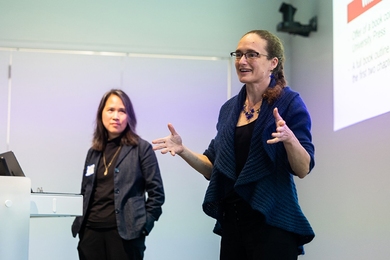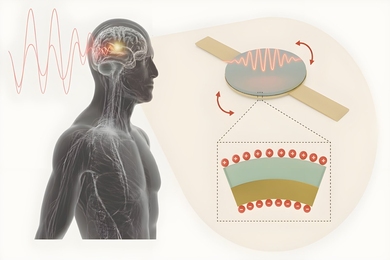Carlos Castro, a Catalyst Fellow in the Madrid–MIT M+Visión Consortium, was named one of the 2015 Innovators Under 35 Spain by MIT Technology Review, Spanish edition. Each year, 10 Spaniards under age 35 are recognized for their achievements in technology innovation. Castro was included for his work on a new technology to non-invasively count white blood cells, an important medical indicator for chemotherapy patients, especially those suffering from lymphoma or leukemia.
“Being named one the Innovators Under 35 España is a great honor and recognition for me,” said Castro. “I knew the award because of some of the people who had won it in the past, individuals with an extraordinary vision who are transforming how the world works through their companies and projects. This award is a great motivation to follow their path and bring technological innovations that can improve people’s life and health care.”
Castro was motivated to explore the importance of controlling white blood cell counts by personal experience, when one of his roommates was diagnosed with lymphoma. The new technology he is developing with an M+Visión project team analyzes blood in the capillaries under fingernails.
“Our technology detects the different wavelength absorptions between red blood cells and white blood cells and performs a real-time count. It then performs an analysis to determine the proportion of white blood cells in that volume of blood.”
If proven safe and effective, Castro’s new technology would complement and enhance the current practice of blood draws at a clinic. "We are not trying to replace blood draws in the clinic, but instead enable more frequent checks, even at home, to tell whether a patient risks infection or should have a new dose of chemo," he said.
The team has already tested a prototype at Hospital Fuenlabrada in Madrid and received good results. It currently uses a small commercial USB-connected microscope and smartphone-style magnifying glass. A second prototype for testing at Massachusetts General Hospital is under discussion.
Team Leuko, as it is known in M+Visión’s Catalyst program, received its initial funding from the regional government of Madrid, and has since won additional funding from the Center of Future Technologies in Cancer Care and the Wallace H. Coulter Foundation at Boston University.
Members of the Innovators Under 35 evaluation committee were moved by the technology’s potential to impact so many people. According to the official announcement from MIT Technology Review, Spanish edition, Regina Revilla, president of the Spanish Bioindustry Association (ASEBIO) said, "Castro’s project's [potential] contribution to society is high because it has a real chance to change the way chemotherapy is administered. … [It can] improve the quality of life for many patients while saving significant health care costs."
Elfar Adalsteinsson, M+Visión associate director and one of the Catalyst program mentors, said: “Carlos is a rising star and future leader in the space of biomedical innovation. His accomplishments are fantastic and I look forward to his future contributions.”
